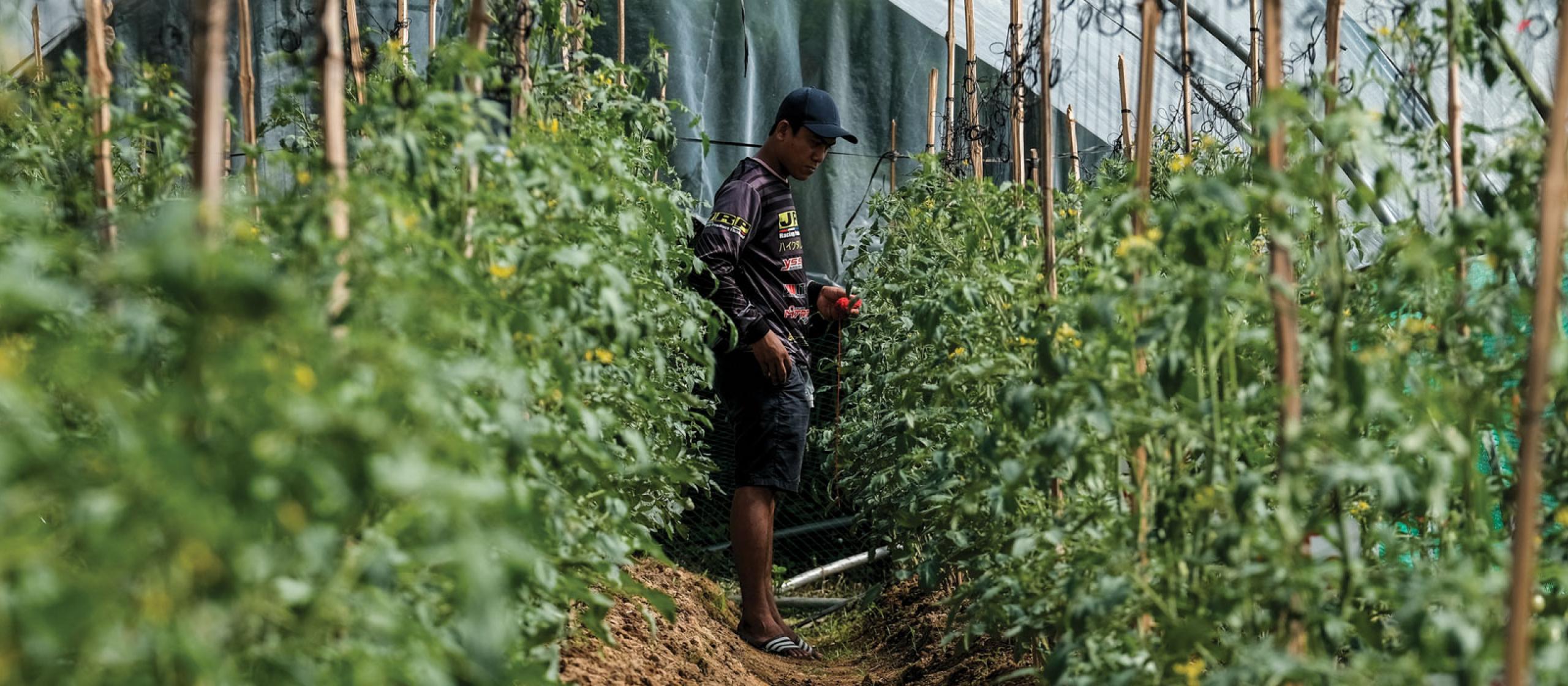The training program is based on the existing PhilGAP certification and takes an extended hands-on approach over several months, to help smallholders move step-by-step towards full certification.
The training program has 4 elements: food safety, environmental sustainability, growing high-quality produce and worker health and safety.
‘We start with the easy things, such as the differences between the chemicals farmers might be using, and how to apply them for best effect, safely,’ explained Mr Goldwater. ‘Then we move onto record keeping, trying to keep track of what’s been done on the farm, and using those records to analyse profitability and comparing crops to support farm viability,’ said Mr Goldwater.
He highlighted challenges for smallholders in parts of the process that require financial investment, such as building separate storage facilities for different chemicals and installing a toilet on-farm.
Despite this, 19 smallholders have received full certification since the program began in 2019 and all participants have completed at least half of the training program. Another 30 or more are expected to be fully certified by the time the program finishes in June 2024.
Professor in Horticulture Dr Zenaida Gonzaga at Visayas State University is coordinating the project’s research in the Philippines, including testing for potential sources of microbial and chemical contamination that may affect the safety of crops.
Dr Gonzaga said key issues are Escherichia coli bacteria in irrigation water, contamination from fresh manure applied as fertiliser and pesticide residues on vegetables. Interventions trialled in the Philippines and Australia include the use of withholding periods following the application of manures, after irrigation and after the use of pesticides, and washing treatments to remove pathogens from harvested produce



